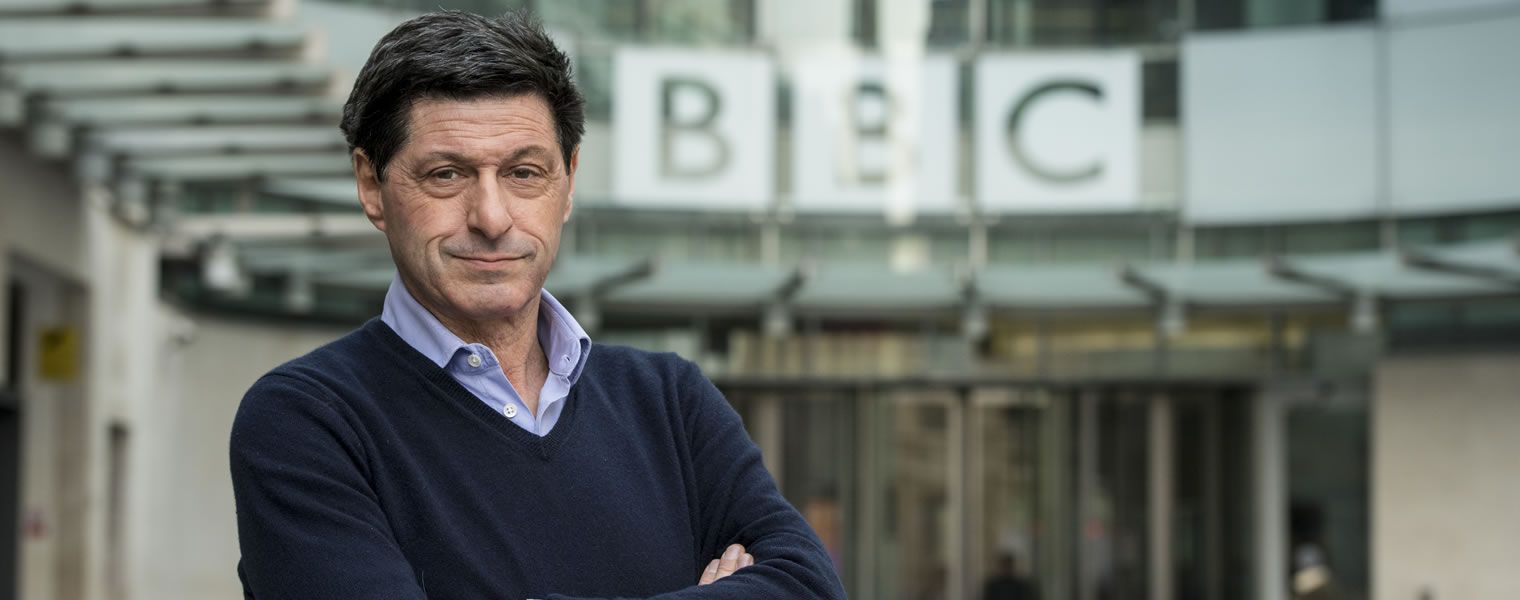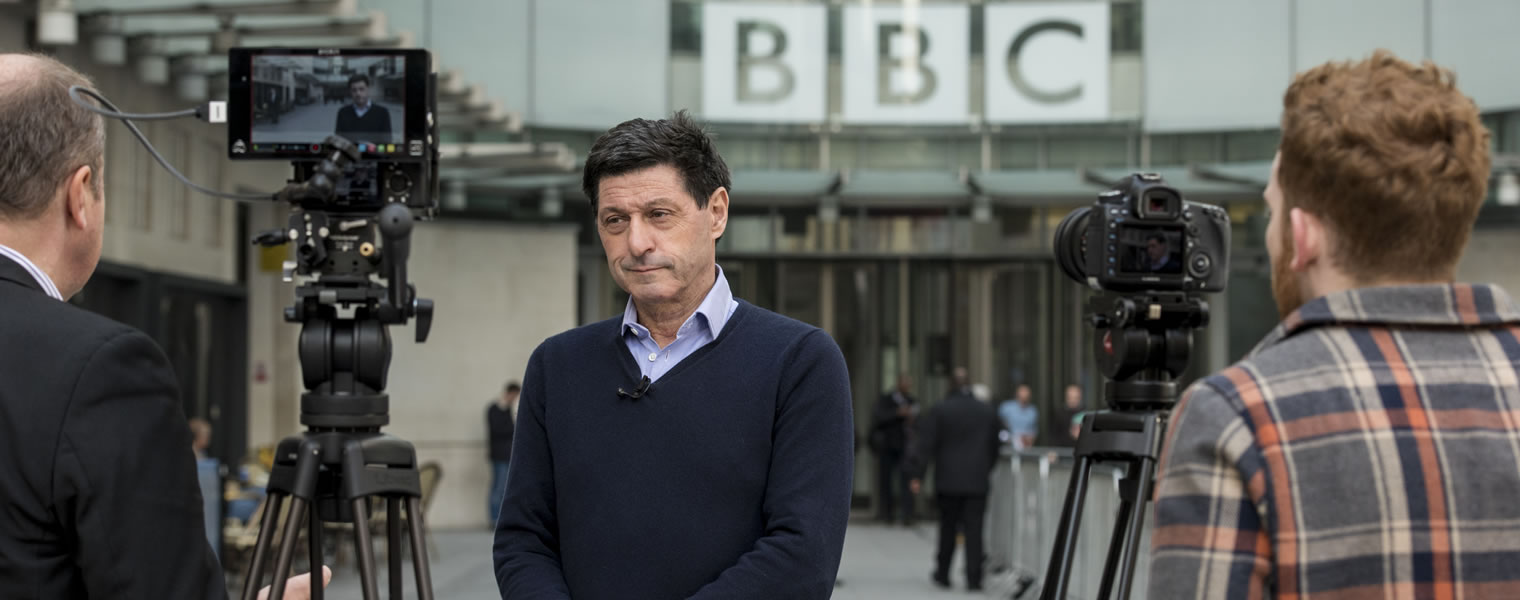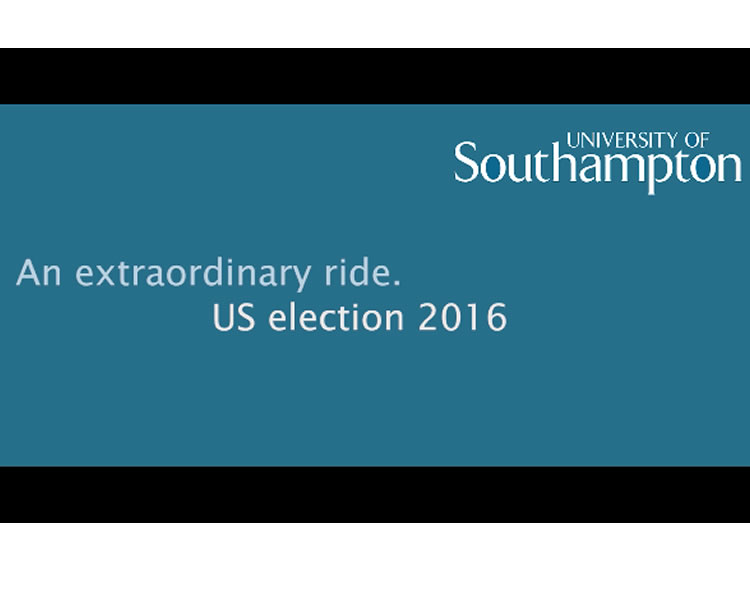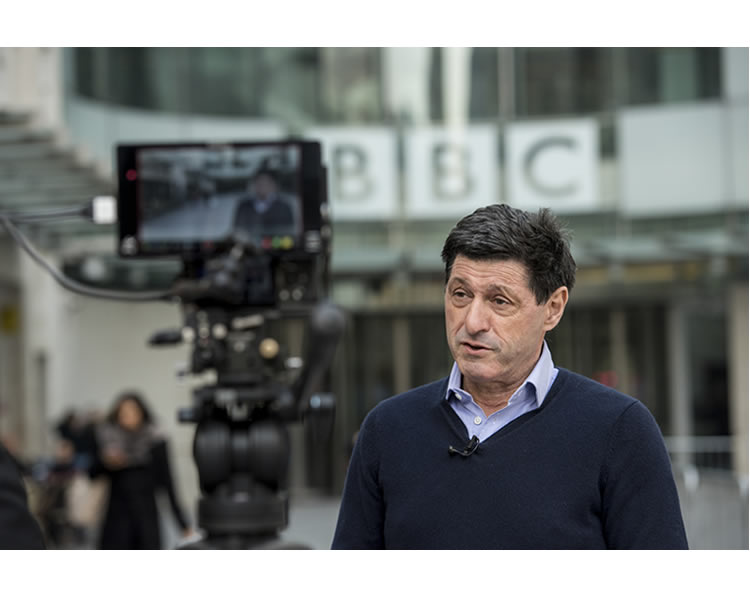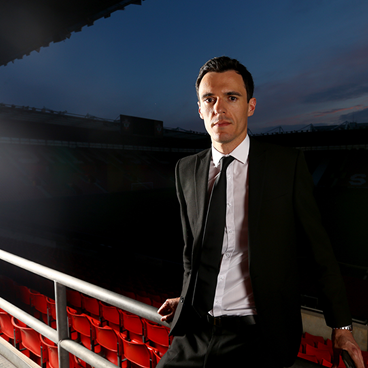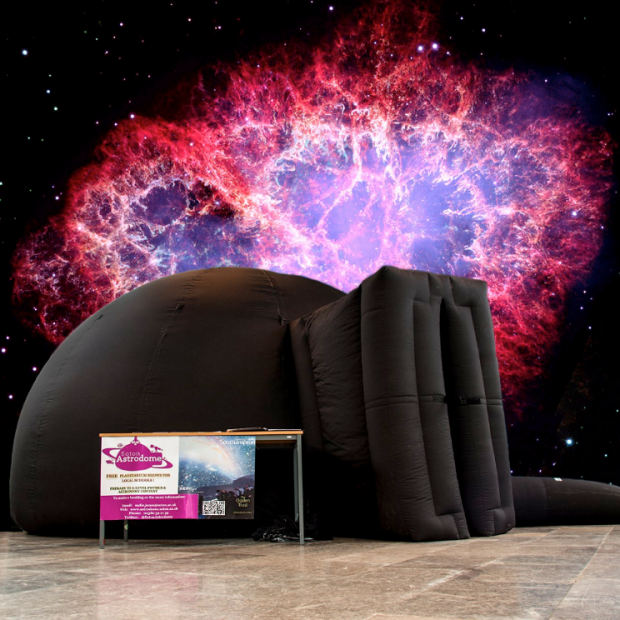Hartley News Online Your alumni and supporter magazine
Alumnus Jon Sopel (BSc Politics and Sociology, 1983) is a journalist and presenter. A former political journalist of the year, he was appointed as the BBC’s North America Editor in April 2014, based in US capital, Washington, DC. In July 2015, he conducted a wide-ranging interview with US President Barack Obama and throughout 2016 is closely following the country’s presidential election.
Are we experiencing an ‘election for the ages’ with a really strong female candidate Hillary Clinton, the upstart Bernie Sanders and the celebrity candidacy of Donald Trump; do those and other elements make this a ‘classic’ election?
It is a classic election in terms of just how unpredictable it is and just how unexpected it is. If you had said to me a year ago that we are going to be discussing seriously that Donald Trump is going to be the Republican nominee, every single serious commentator in Washington would have laughed in your face. I think he is virtually unstoppable now as the Republican candidate so in that sense, yes this is a race for the ages. This is a one-off, this is extraordinary.
On the other hand, you might end up with Hillary Clinton as President, a pretty normal politician who is very experienced as Secretary of State and a Senator. But there is a possibility that America could, for the first time, elect someone who has neither held high office or been elected to anything, or been a senior member of the armed forces. It’s perfectly possible.
In terms of legacy, what might a new Presidency look like under Clinton or Trump? Are there differences that you can see coming after your experience of the Obama administration close-up?
There will be differences and under Donald Trump: there will be huge differences. For example, there might be a wall that stretches 2,000 miles along the border between the United States and Mexico. I can’t see how you would actually implement it, but there also might be a ban on all Muslims coming into the country, because those are the things he’s said. In a sense, there could be seismic changes in America.
I heard Condolezza Rice [former US Secretary of State under President George W Bush, 2005-09] saying: “where a candidate says ‘the thing I’m going to do on day one’, they’re never going to do it”. They will get to office, realise that life is more complicated, that there are more nuances, more alliances that you need to build and it will never happen. I think that’s a very good piece of instructional advice that actually the constraints of the job will stop them doing the wild, far-out things that maybe sound good on a campaign platform.
You’re right in the middle of the US election right now. Would you describe it as a marathon, or is it a series of marathons in terms of the way the process is playing out?
It’s a really long drawn-out process and a lot of people could get really bored with it and think: ‘oh no, not another day of Donald Trump’. But it has been the most extraordinary ride to be on, where you don’t know quite what’s going to happen next.
It’s a rollercoaster ride where you have these vertiginous drops and then you’re back up again. It’s a good process in a way because Americans get a very good, close look at their candidates; not only through the endless televised debates, but in very basic retail politics whether that’s in Iowa, New Hampshire; wherever it happens to be. As a candidate, you’ve got to be on the ground, you’ve got to be shaking hands, you’ve got to be talking to people, you’ve got to be listening to people’s concerns. I think that’s a pretty good piece of democracy.
Does the US general election process compare to anything else you’ve experienced and are there any similarities to the UK general election process?
There are certain overlaps in all politics in the sense that the voter feels they can see what people are doing, why they’re doing it and the spin operation that takes place after someone has spoken about what they were really trying to say. All of that is very much the same.
American politics just feels bigger. It just feels more muscular; it feels richer; there is more conflict. There is more excitement in this particular electoral primary season, and they are always dirty. I was reading a book by Teddy White on the 1964 US election [The Making of the President 1964] and the brutality of what went on then, but this election in 2016 is something else.
As you travel across and around the United States, how have you been received and what are you feeling in terms of the local contrasts and sentiments first hand?
People think of America as this vast land mass and how it takes five and a half hours to fly from where I live in Washington DC across to the west coast; that it’s one homogeneous whole.
There are lots of different Americas. You’ve got the very strong evangelical votes in certain states and then its white working class in others. Or in another it might be the African-American vote. Then you’ve got the liberal east and west coasts, so there are a lot of different Americas and the mistake people make is trying to lump it as one amorphous mass.
With President Obama, there was ‘hope’ and ‘change’ and all of those things promised eight years ago, but what is the legacy he will leave?
His place in the history books is assured, without doubt, as the first African-American President. He is spectacularly articulate, he is brilliant at speech-making and he is brilliant at one-to-one interviews. In domestic policy in 2008 at the height of the financial crisis, the car industry looked like it was going to go bankrupt, but you look at America today and it’s so much better than that.
That said, there are an awful lot of people who feel that the American dream has left them behind, who feel that the one per cent – or even the point one of one per cent – are doing exceptionally well and the rest of America is struggling with stagnant wages, and the problems that are associated with that. So Obama leaves a country that’s not feeling wealthy or at ease with itself.
On foreign policy, we can sense the frustration in the most recent interview he’s done with The Atlantic magazine but there are other things you can point to, such as the unemployment statistics, and say that in a lot of ways America is doing pretty well.
When you’re standing on the White House lawn, Southampton must seem a long way away. Did you ever imagine there was going to be such a strong link between you and the White House in ‘x’ number of years after graduation?
I would never have dreamed even 10 years ago when my journalistic career was pretty advanced and I was doing moderately well that I would be sitting in the White House interviewing the President of the United States. And I have done.
When I was at the University of Southampton I was thinking ‘wouldn’t journalism be fun?’ and I was so thrilled when I got my first job at BBC Radio Solent in Southampton reporting on whatever was happening at Southampton City Council. Now, I’m doing the same job effectively – you could say I’ve had a really boring career doing the same thing thirty-plus years later. I’m just doing it on a slightly bigger stage.
And advice for anyone who is there now on campus in Southampton thinking ‘I would like to follow in the footsteps of Jon Sopel’?
Here we are discussing US politics, and of course the cornerstone of the ‘American Dream’ is that anyone from the most ordinary background can one day rise to become President of the United States. So in that spirit, aim for the sky. Be resolute and don’t give up when you get knocked back as you most certainly will along the way.
